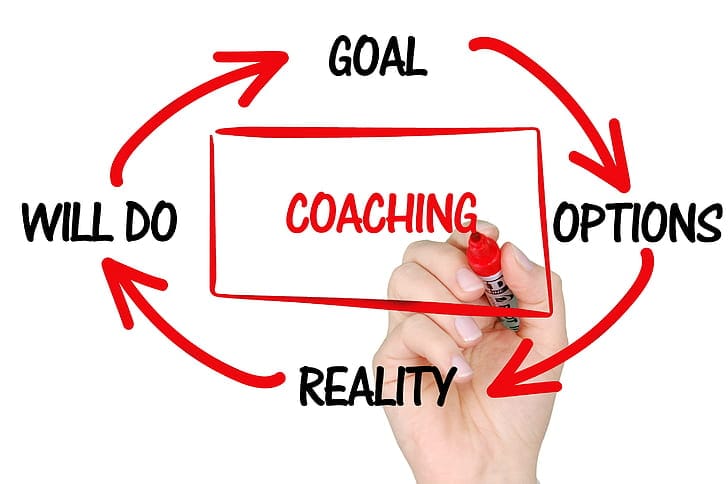Coaching is a powerful tool for personal, professional, and organizational growth. A coach’s job is to guide, support, and challenge people to reach their full potential. Coaches help individuals achieve goals and grow in different areas of life or work. There are different coaching styles that fit different client needs and situations. Here are ten common coaching styles, with their meanings and benefits:
1. Transformational coaching
Definition:
Transformational coaching helps people make deep personal changes. It focuses on beliefs, values, and life purpose. The goal is to change how clients think and help them see their lives from a new perspective.
Benefits:
- Encourages self-awareness and personal growth.
- Helps people solve problems in a more thoughtful way.
- Empowers clients to make lasting changes.
- Builds confidence by helping clients find purpose.
Best for:
People who want deep change in their personal or professional lives. It works well for those at a turning point in life.
2. Executive coaching
Definition:
Executive coaching helps high-level professionals improve leadership skills, decision-making, and impact within their organization. It focuses on performance and leadership development.
Benefits:
- Strengthens leadership and emotional intelligence.
- Improves strategic thinking and decision-making.
- Enhances communication and team management.
- Increases professional performance.
Best for:
CEOs, executives, and business leaders looking to improve their leadership style.
3. NLP (Neuro-Linguistic Programming) coaching
Definition:
NLP coaching uses techniques from neuro-linguistic programming to change how people think, behave, and respond emotionally. The coach helps clients reframe limiting beliefs to create positive changes.
Benefits:
- Helps break self-doubt and limiting beliefs.
- Encourages positive thinking and emotional strength.
- Improves communication and social skills.
- Helps clients see quick breakthroughs.
Best for:
People wanting to change negative habits, develop new thoughts, or improve emotional responses to challenges.

4. Career coaching
Definition:
Career coaching helps people navigate their career path. It’s useful for those seeking a job change, career advancement, or a shift to a new field. Coaches help set career goals and build a success plan.
Benefits:
- Provides clarity on career direction.
- Helps with job searches, interview prep, and resume building.
- Identifies strengths and talents.
- Boosts confidence in career choices.
Best for:
Job seekers or professionals looking to advance or change their careers.
5. Performance coaching
Definition:
Performance coaching helps people improve their skills and results. The goal is to boost performance by setting clear objectives and working on areas that need improvement.
Benefits:
- Increases productivity and goal achievement.
- Identifies obstacles to performance.
- Fosters a results-focused mindset.
- Builds confidence by showing measurable progress.
Best For:
Professionals, athletes, or anyone wanting to enhance their performance in high-pressure environments.
6. Life coaching
Definition:
Life coaching takes a holistic approach to personal growth. It helps individuals improve various areas of life, including relationships, health, career, and overall well-being.
Benefits:
- Encourages self-discovery and personal growth.
- Helps set and achieve life goals.
- Promotes work-life balance.
- Builds resilience and confidence.
Best For:
Individuals seeking overall life improvement, balance, or clarity in personal goals.

7. Health and Wellness Coaching
Definition:
Health and wellness coaching focuses on improving physical and mental well-being. Coaches help clients set health-related goals like weight loss, fitness, nutrition, or stress management.
Benefits:
- Improves physical health and fitness.
- Encourages healthier lifestyle choices.
- Reduces stress and promotes mental well-being.
- Provides accountability and motivation for health goals.
Best For:
Individuals looking to improve their health, adopt better habits, or manage stress.
8. Business coaching
Definition:
Business coaching helps entrepreneurs and professionals grow their business or improve organizational performance. Coaches focus on strategy, goal setting, and problem-solving.
Benefits:
- Offers guidance for business growth.
- Enhances leadership and management skills.
- Helps with goal setting and planning.
- Improves team performance and efficiency.
Best For:
Entrepreneurs, small business owners, or corporate professionals looking to grow their businesses.
9. Leadership coaching
Definition:
Leadership coaching develops leadership qualities like communication, emotional intelligence, and team management. It’s designed to help leaders guide their teams more effectively.
Benefits:
- Strengthens leadership and emotional intelligence.
- Improves conflict resolution and decision-making.
- Enhances communication and team management.
- Inspires and motivates others.
Best for:
Aspiring or current leaders wanting to improve their leadership skills.
10. Organizational development coaching
Definition:
Organizational development coaching focuses on improving an organization’s culture and effectiveness. Coaches work with teams to enhance collaboration and create a positive work environment.
Benefits:
- Enhances organizational efficiency.
- Promotes a positive work culture.
- Aligns team efforts with company goals.
- Improves communication and teamwork.
Best for:
Organizations looking to improve workplace culture, team collaboration, or performance.

Coaching strategies to enhance results
To make coaching more effective, coaches often use specific strategies to achieve better outcomes. Here are some common strategies:
1. Goal-setting and action planning
Coaches help clients set clear, measurable goals. They also create a plan to achieve them step by step.
Benefits:
- Provides clarity and focus.
- Breaks down big goals into manageable steps.
- Encourages accountability.
2. Active listening and empathy
Active listening means the coach pays close attention to the client’s words and feelings. This creates a strong sense of support and trust.
Benefits:
- Builds trust and rapport.
- Helps clients feel understood.
- Encourages deeper reflection.
3. Powerful questioning
Coaches ask thoughtful, open-ended questions that make clients think more deeply. These questions help clients challenge assumptions and gain new perspectives.
Benefits:
- Encourages self-awareness.
- Helps clients uncover hidden motivations.
- Promotes problem-solving.
4. Accountability and support
Coaches hold clients accountable for their actions. Regular check-ins and feedback help clients stay on track.
Benefits:
- Keeps clients committed to their goals.
- Provides motivation.
- Helps recognize progress.
5. Visualization and mindset shifts
Visualization helps clients imagine success. Shifting their mindset helps them overcome limiting beliefs.
Benefits:
- Encourages positive thinking.
- Helps build confidence.
- Promotes a growth mindset.
How to identify which coaching style fits you best
Finding the right coaching style depends on understanding your personal or professional goals. Start by evaluating the areas in your life where you want growth or change. For example, if you’re looking for deep personal transformation, transformational coaching might be the best fit.
On the other hand, if you need help with leadership skills, executive coaching could be ideal. It’s important to assess what you need most – whether it’s personal development, career guidance, or improving performance in a specific area. Once you know your needs, match them with the coaching style that best supports those goals.
How to choose the right coach for your personal or professional growth
Choosing the right coach is an important step toward achieving your goals.
First, consider the coach’s expertise. A coach who specializes in your area of need, whether it’s leadership, health, or career, will offer more tailored guidance.
Next, evaluate the coach’s communication style. Do they use empathy and active listening? Are they goal-oriented and results-focused? Also, consider their credentials and experience. Checking reviews, client testimonials, or certifications can help you assess their credibility.
Finally, ensure you feel comfortable and trust the coach – this relationship is key to success.
Conclusion
Coaching offers many styles and strategies to fit different needs. Whether you want to change your life, grow in your career, or become a better leader, there’s a coaching style for you. By understanding the different types of coaching, you can choose the one that best suits your goals. This way, you can make real progress in both your personal and professional journey.
Ready to Transform Your Life?
As a Certified Business & Lifestyle Coach, I am here to help you reach your goals. Whether you are looking to enhance your personal life or excel in your career, together, we can achieve your aspirations. Book a consultation and let’s start this journey of growth and success together!

